#frank salsedo
Text
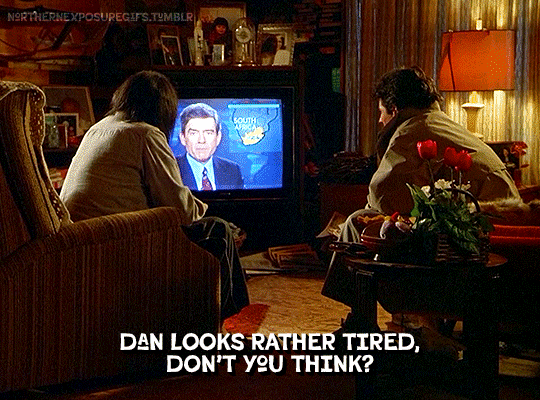

But I'm a one-anchor man.
#northern exposure#90s television#90s tv shows#dan rather#frank salsedo#rob morrow#uncle anku#joel fleischman#nx#1x02 brains know-how and native intelligence
20 notes
·
View notes
Text
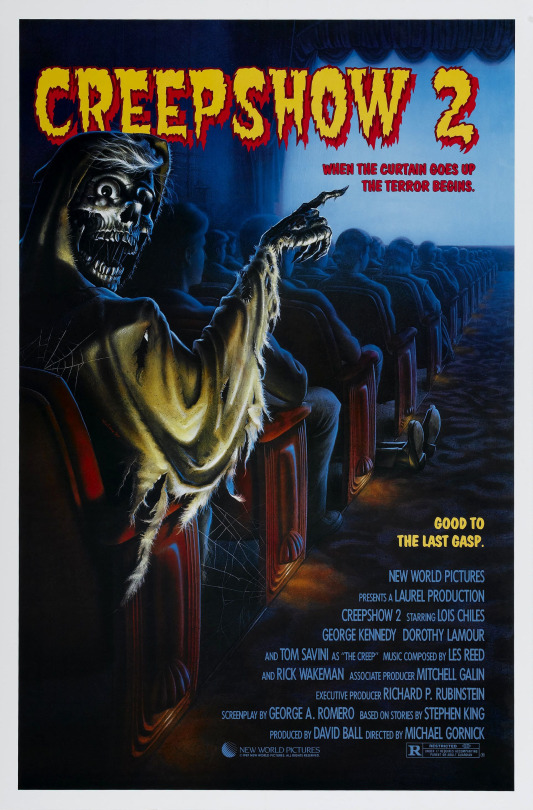
Films Watched in 2023:
58. Creepshow 2 (1987) - Dir. Michael Gornick
#Creepshow 2#Michael Gornick#George Kennedy#Dorothy Lamour#Lois Chiles#Tom Savini#Tom Wright#Frank Salsedo#Holt McCallany#David Holbrook#Don Harvey#Stephen King#Creepshow#Films Watched in 2023#My Post
1 note
·
View note
Text
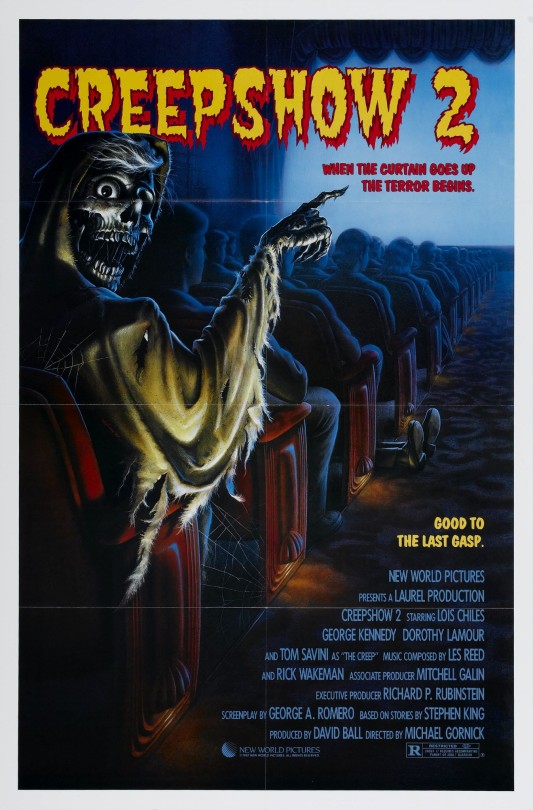
WATCHING
#creepshow 2 (1987)#George A. Romero#Stephen King#Lois Chiles#George Kennedy#Dorothy Lamour#Tom Savini#Will Sampson#Frank Salsedo#Holt McCallany#watching#horror#portmanteau film#anthology film
2 notes
·
View notes
Text
Can I please talk about how no one knows how inclusive and woke Quantum Leap was in 1989?

Sam Beckett (Scott Bakula) attempts to travel through time and ends up doing so by “leaping” into the bodies of people who lived during his own lifetime. He only leaps out when he’s put something right in their lives.
And it gets fucking DEEP.
Over the course of the series, Bakula takes on the role of:
A man with Down’s Syndrome
A blind man
Several Black characters
Several women
Holy shit the amount of diversity
Now, you only see THOSE characters when there’s a mirror around—Bakula is himself but in the show, everyone sees the person he’s taking the place of. Which is amusing when you get shit like this:

But what I absolutely love is that Quantum Leap’s supporting cast reflects that diversity.

Frank Salsedo, a Native American actor.

Rhondee Beriaut, a deaf actress/dancer playing in a deaf role—sadly her filmography is very short.
My memory is shit so I’d have to go through and pull a bunch more.
The thing is, it would have been VERY easy for the studio to just grab anybody and stick them in these roles. And not just that, but the way they subvert expectation and make these stories about empowering people rather than feeling sympathy for them makes me actually believe that the writers gave half a shit about what they were writing.
Quantum Leap is a sci-fi show at its core. No one asked it to go as hard as it does on classism, sexism, disability, queer issues, assault and abuse, racism and privilege, just—the fucking anthems and flags this show carried. In the late eighties. This is shit that I’d see on TV now and people will still be saying “wow they’re trying too hard to be woke” and it’s like... fuck. No, they probably didn’t break ground and they’re not the only ones to do this, but I wish we had more.
Anyway that’s just a little of what I like about Quantum Leap.
678 notes
·
View notes
Text
Notes on Northern Exposure, S01E02: “Brains, Know-How and Native Intelligence”
We begin the episode with Chris Stevens delivering his first ever “Chris in the Morning” address on the show, in Cicely’s local radio station, KBHR, or “K-Bear”. Why “K-Bear”? Well, firstly, it’s customary for radio stations to be given easily pronounceable names inspired by their initials, for the sake of marketing. But there’s an additional fun fact regarding this particular station’s origins: both KBHR and its nick-name belong to a real-life local radio station in Big Bear City, California. Surrounded by the Alaskan wilderness, Cicely undoubtedly has more than its fair share of bears, so the nickname remains appropriate.
The subject of Chris’s speech, and a significant chunk of the episode, is the 19th century poet Walt Whitman, an American literary giant and one of Chris’s leading artistic inspirations. But not everyone approves of Whitman. Chris recalls being “blindsided by the raging fist of [his] incarcerator,” at the juvenile detention home where he spent his juvenile delinquent days. This stern authority figure told Chris, in no uncertain terms, “that Walt Whitman's homoerotic, unnatural, pornographic sentiments were unacceptable and would not be allowed in an institution dedicated to reforming the ill-formed.” Whitman’s sexuality has been the subject of endless debate, but it’s generally accepted that he was either homo- or bisexual. That Whitman, “that great bear of a man, enjoyed the pleasures of other men came as a great surprise” to Chris, leading him to “reconsider the queers [he] had previously kicked around.” Yes, Chris wasn’t always the open-minded liberal we otherwise see him as. He was, in his youth, capable of homophobic violence. This makes me, a confirmed homosexual (or “homo-romantic grey-sexual,” if we’re being particular), rather sad. It also makes me more inclined to be wary and critical of Chris in this episode.
Chris reads Whitman’s “When Lilacs in the Dooryard Bloom’d” (1865), a poem written following the end of the American Civil War (1861-1865), during a period of national mourning over the then recent assassination of former president Abraham Lincoln. The poem doesn’t explicitly identify Lincoln, but it’s generally thought that that’s who the poem was about. However, the final line of the first stanza – “And thought of him I love” – may have been presented in this scene in order to underline the topic of Whitman’s sexuality. For Whitman’s clearest expression of homosexual love in verse, one should really examine the “Calamus” sequence of poems written in or before 1859, included in the third edition of Leaves of Grass, originally published in 1855. (I nearly read some to an ex-boyfriend on his birthday once. I regret not doing that. But they were aware of the thought, and I got a lot of love for it, so it balanced out.)
We catch a glimpse of Maurice fishing whilst listening to Chris’s show. He clearly isn’t impressed by all this talk of Whitman enjoying “the pleasures of other men.” Maurice was established as being, at the very least, a sexist and racist bigot in the previous episode, so any homophobia on his part wouldn’t come as a surprise. This still doesn’t prepare the viewer for what Maurice will do next.
Meanwhile, in this week’s instalment of “Will They? Won’t They?’ Joel and Maggie are in the Brick, having a go at each other over plumbing. This argument at least feels as if it springs from a natural cause, compared to last week’s glaringly-contrived-in-order-to-establish-the-formula bickering. Joel is talking to Maggie as his landlord, about a faulty toilet. Maggie teases Joel over his lack of self-reliance: why not try fixing it himself, or go out and fertilise the scenery? She winds up calling him a “helplessness junkie”, an odd turn of phrase he’ll spend half the episode grumbling about and later delight in throwing back at her, when she visits him in his surgery over a self-inflicted knee injury.
Joel’s chauvinism is out in full force again, as he offers to treat any puncture wounds Rick may have received from Maggie walking all over him in her heels. Yecch. And then he comes on to her in a way that fictional characters in a “Will They? Won’t They?” comedy set-up routinely get away with, when he says “you’re clearly attracted to me.” Of course, the show will routinely remind us she is. But in real life, if you said something like that to someone, it would be widely and rightly considered inappropriate. Unlike the utterly irredeemable and thoroughly loathsome Ross Geller in Friends (NBC, 1994-2004), Joel is a genuinely likeable character under all the sexist asshattery the writers insist upon having him say. I hope the situation improves, and soon.
Joel remarks that he’s “not the Grizzly Adams type.” This is a reference to John “Grizzly” Adams, a nineteenth-century mountain man who hunted and trained wild animals (including, you guessed it, “grizzly” bears) for use in zoos, menageries and circuses, from New England to California. An outdoorsman and a showman (he partnered up at one point with another American icon, that jack-of-all-trades P.T. Barnum), “Grizzly” Adams became, in the popular cultural consciousness, an iteration of an American frontiersman archetype, akin to Davy Crockett. Joel does not resemble that archetype at all – but Brick proprietor Holling Vincoeur, according to Joel, does. We’ll see how that comparison bears out in the episodes and seasons to come.
Meanwhile, over at K-Bear, the “raging fist” of Maurice Minnifield comes raining down on Chris Stevens like the fist of that faceless authoritarian in Chris’s juvenile detention home. I find the violence Maurice inflicts on Chris in this episode jarring. We later learn from Joel that Maurice threw Chris through a plate-glass window. We see bruises and band-aids on Chris’s face, and his arm in a plaster cast. We learn, towards the end of the episode, that Chris snuck in a decent left-hook – but that still, to my mind, doesn’t make up for what might be one of the single most unpleasant things Maurice has done on the show.
And while we’re on the subject of violence, what about Ed’s response to Joel describing his current spat with Maggie? He asks “Did you hit her?” Where did that come from? A more uncharacteristic thing for Ed to say – even just two episodes into the show – is hard to imagine. Is it meant to suggest that Ed grew up in an environment where domestic violence was the norm? Or that Cicely’s foremost cinephile learnt everything he knows about human interaction from the movies? I don’t know. I just know that it’s a weird, discomfiting line.
Ed introduces the episode’s secondary plot, which is about Ed’s uncle Anku (Frank Sotonoma “Grey Wolf” Salsedo). Ed tells Joel that his uncle is a “witch doctor,” which briefly leads them into a variation on the famous “Who’s on First?” comedy routine.
Ed’s uncle is seriously unwell – as in, there’s blood in his urine. And blood in your urine is nothing to be sniffed at. 11 years ago I had a urinary tract infection thanks to the onset of type-one diabetes. The pain was unreal. Imagine passing red hot needles instead of water. TMI? Ah, DMY. My point is, it’s not something you can comfortably ignore. And as a doctor, Joel knows it’s not something you can afford to ignore. And so, at Ed’s behest, Joel spends a significant chunk of the episode befriending Anku and trying his best to persuade him to seek medical attention. But, unbeknownst to Anku’s family, Anku has already sought medical attention and learnt that he has prostate cancer. He just needs Joel to pressure him into swallowing his pride as a medicine man before seeking further treatment.
Joel will, in dealing with Anku, realise in an on-screen “eureka!” of an epiphany that pride is the theme binding all the episode’s narrative threads together. Anku’s pride, his own pride, Maggie’s pride, Maurice’s pride, are all wrapped up in a neat little package. Is it too neat, too tidy? Maybe, but I like it. It’s a reassuring sign that Joel’s character won’t remain static, that he’ll gain new insight into the town and its characters, learn new things and continue to develop over the course of the series.
“Keeping it in the family”: Mrs. Anku is played by Armenia Miles, the mother of Elaine Miles, who plays Joel’s secretary, Marilyn Whirlwind. In future episodes, she’ll play Marilyn’s mother.
Anku asks Joel if he’s ever seen the film Little Big Man (dir. Arthur Penn, 1970), in which Dustin Hoffman plays a man who, as a white child, was rescued and raised by a Cheyenne tribe. Is Anku drawing a connection between the Jewish actor and Jewish doctor, to whom he imparts some of his own “native intelligence”?
Joel, after explaining that he can’t keep chasing after Anku, pleads with Ed not to “do this northern brooding thing, I can’t stand Bergman films.” Is Joel intentionally using sophisticated cinema references he knows Ed will get? Because if so, that’s kinda cute. Couple that with Ed watching Joel as he sleeps, and I wonder if anyone, anywhere, at any time, has thought to ship these two characters?
As Maurice takes full control of radio K-Bear we learn he’s a huge fan of musical theatre, something that’s often been depicted as a stereotypical trait of gay men (less so these days, but very much so in the nineties). Is the episode replaying the old, unhelpful cliché that “all homophobes are repressed homosexuals”? I don’t think so. It certainly doesn’t underline or lean into that idea. As much as Maurice’s showtunes are driving the residents of Cicely crazy, he’s never mocked for the fact that he enjoys showtunes.
At a town meeting, angry Cicelians call for the reinstatement of Chris Stevens as radio presenter. Maurice isn’t having it. “One of our own, Chris Stevens, made a mistake,” he “did a bad thing” and “he had to pay for it.” What was that mistake? We get an answer, of sorts, when Maurice returns to the airwaves the next day and attempts to explain his recent behaviour. It’s a speech that causes the entire town to stop in its tracks, suggesting we should stop in our tracks too and take what Maurice is saying seriously.
Maurice recalls his devastation upon discovering, as a child, that his hero John Wayne didn’t do his own stunts. The gist of it is, Maurice doesn’t want his heroes to be humanized, to have their weaknesses exposed. “Sure, we’re all human,” but do we have to be reminded that our heroes are human too? Maurice is an advocate of the “Great Man” theory of history, the idea that the greatest achievements in human history were brought about by great men (and with his ego, he no doubt fancies himself one). Maurice wants his heroes to remain on their marble pedestals as untainted paragons of manly virtue. “We need our heroes. We need men we can look up to. Believe in. Men who walk tall.” Of course it doesn’t occur to Maurice, just as it doesn’t occur to most advocates of the “Great Man” conception of history, that those heroes could include women or minorities.
Maurice considers Walt Whitman a hero. Though “Walt Whitman was a pervert,” in Maurice’s bigoted view, “he was the best poet that America ever produced.” Maurice concedes that Whitman was, most likely, a homosexual. He’d just rather not know or be reminded of that. Because Maurice is a homophobic bigot who believes that homosexuality is a weakness, a character flaw that should be hidden from view, never to be acknowledged. But just because Maurice believes that “there are damn few of us who deserve to be called heroes” and that, despite his own bigotry, Whitman deserves the title of hero, doesn’t make Maurice less wrong or less of a bigot.
And yet, as the speech prompts Chris to go and apologise to Maurice, the episode seems to come down firmly on Maurice’s side of the argument. Not that there’s actually been an argument. No one in town has attempted to argue the opposite of Maurice’s position – that a knowledge of Whitman’s probable homosexuality does nothing to diminish him or his work. The implicit and unfortunate assumption in this episode is that it does diminish Whitman. That’s why we have Chris apologising to Maurice, saying that he also doesn’t want people reading Walt Whitman for “the wrong reasons.” What reasons are those, Chris? The only reason suggested in the episode comes from Ruth-Anne, when she tells Joel that all the Whitman has been taken out of the library as there’s “nothing like an interesting sex-life to get people reading.”
So, is Chris suggesting that he doesn’t want people reading Whitman because of his sexuality? Why not? Whitman’s “Calamus” poems meant a lot to me when I was younger, and I would never have discovered them had I not heard about Whitman’s sexuality and the poems’ reputation. I see in them a beautiful expression of the romantic feelings I then had for my ex-boyfriend, and I can’t read them now without getting misty-eyed. Like a lot of great poetry, the poems powerfully describe feelings of romantic/erotic longing, the distinction being that they clearly describe feelings of romantic/erotic longing between men. It isn’t “subtext.” You don’t have to “read between the lines.” It’s there, in the words on the page. Whitman’s sexuality informs his writing, even if his writing isn’t explicitly sexual.
Unfortunately, in the nineties there persisted this idea that homosexuality was something to be guarded against, lest it corrupt our children or our own imaginations when engaged in the intellectual enjoyment of nineteenth-century verse. Depending on where you are in the world, it’s an attitude that still persists or even prevails. And this episode of Northern Exposure appears to embody it.
For me, Whitman’s “Calamus” poems are a powerful reminder of a time in my life when I was young and happy and in love. But Chris appears to be suggesting that I’m reading Whitman wrong. Well… Fuck you Chris. There’s nothing wrong with highlighting the fact that Walt Whitman was likely gay or bi, or that a significant number of his poems appear to have been informed by his own homoerotic desire. It can do a lot of people – gay or bisexual people, for example – a lot of good to know that people who felt the way they do existed in the 19th century, and that they wrote beautiful verse you could share with a loved one.
It should be clear by now that, unlike Maurice, I don’t believe it’s a mistake to humanize our heroes. Knowing Mark Twain loves cats humanizes him. In no way does it diminish my love of Mark Twain (but then I’m a cat person, so I’m biased). Other than the very worst literary critics, who really wants to see the likes of Twain and Whitman reduced to cold, lifeless marble statues in the Pantheon of the American Literary Canon? It does us no harm, either, to learn the personal and political beliefs of our heroes, especially if we don’t want people thinking we share certain of those beliefs. Hero worship is problematic in general, but it’s impossible for us not to admire people, to have our own personal heroes. But as we grow and change over the course of our lives, we shouldn’t be afraid to update that list.
In the course of its run, Northern Exposure introduced a gay male couple; confirmed that its founders, Cicely and Roslyn, were a lesbian couple; and was the second US TV show to feature a gay wedding (the first being Roc [Fox, 1994-1994]). Northern Exposure was not only on the right side of history, it was consistently ahead of its time. If I’ve been especially hard on this episode, it’s because I know how far it falls short of the show’s future accomplishments.
#northern exposure#brains know-how and native intelligence#chris stevens#john corbett#chris in the morning#big bear city#california#cicely#alaska#walt whitman#homosexuality#homophobia#queer themes#lgbtqia#when lilacs in the dooryard bloom'd#calamus#leaves of grass#maurice minnifield#maurice j. minnifield#barry corbin#will they won't they#dr. joel fleischman#joel fleischman#rob morrow#notes on northern exposure#sunday in cicely#sundays in cicely#grizzly adams#frank salsedo
2 notes
·
View notes
Photo
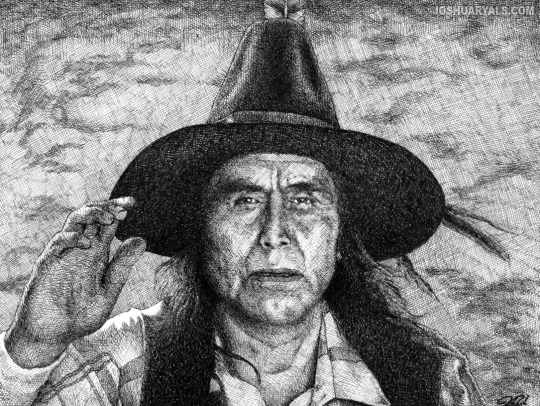
My portrait of Native American actor Frank Salsedo (1929 - 2009) as Benjamin Whitemoon, in the 1987 film Creepshow 2.
I grew up with a vhs copy of this film. I still love it and love Mr. Salsedo’s performance in it. Portrait was created using a Pilot brand fine tip pen on mixed media paper.
#frank salsedo#creepshow 2#creepshow#1980s#1980s movies#horror#stephen king#tom savini#80s horror#ec comics#old chief woodenhead#native americans#acting#wappo tribe#original art#original artwork#portrait#drawing#josh ryals
2 notes
·
View notes
Photo

Creepshow 2 (1987) French lobby card
#creepshow 2#frank salsedo#stephen king#george a romero#old chief wood'nhead#80s horror#creepshow#movie memorabilia#horror movies#horror#lobby cards#lobby card#80s#1987#80s cinema#movies#movie
28 notes
·
View notes
Quote
There is only one thing you have to learn. That freedom, is the greatest gift that we born with... and the hardest thing to hold on to.
Sólo hay una cosa que tenés que aprender. Esa libertad, es el regalo más grande con el que hemos nacido... y es lo más difícil de mantener.
Joseph Waskaki (Frank Salsedo) a Sam Beckett (Scott Bakula) en el cuerpo de George Waskaki mientras conversan sobre su escape de la policía para llegar a la reserva indígena. En Quantum Leap: capítulo 16 - temporada 1 "Freedom" (Levi, 1990).
0 notes
Text
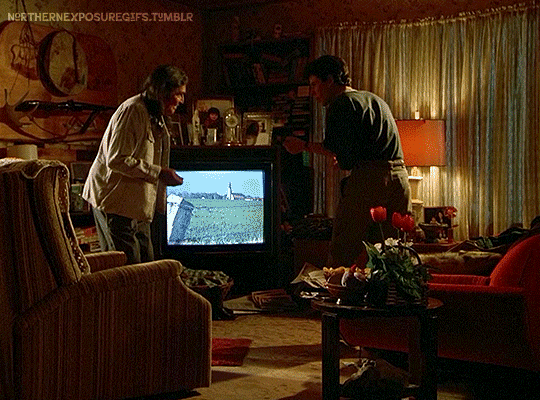


I have two left feet, and my right doesn't have much rhythm, either.
#northern exposure#90s television#90s tv shows#joel fleischman#rob morrow#uncle anku#frank salsedo#nx#1x02 brains know how and native intelligence
17 notes
·
View notes